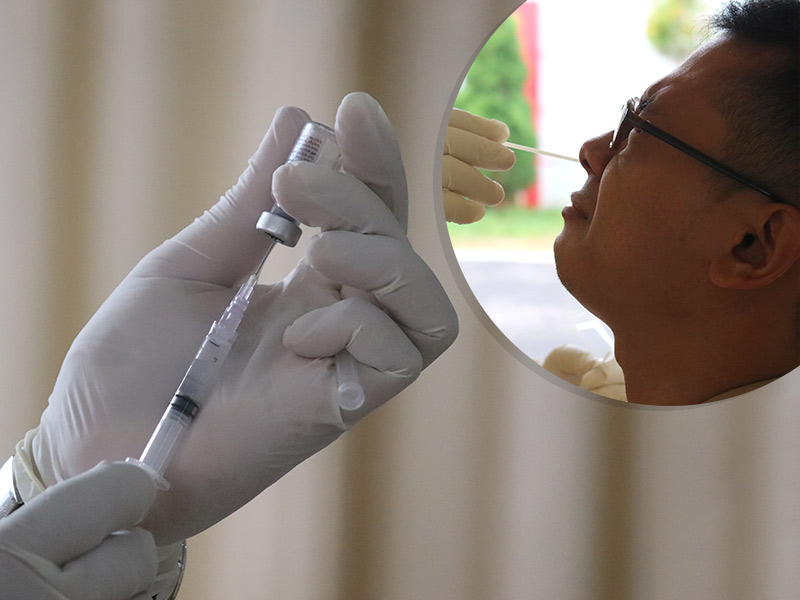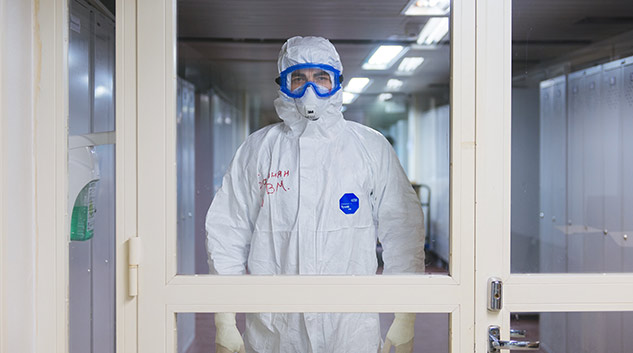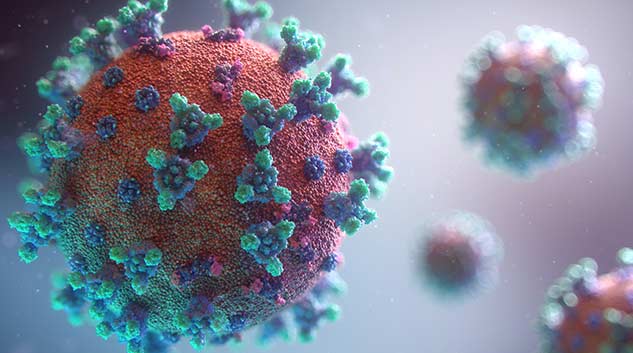
Since being first detected on November 9 in South Africa, the Omicron variant of SARS-CoV-2 has already spread to over 180 nations, the World Health Organisation’s (WHO) data shows. Not only that, Omicron has already become a dominant strain in countries such as South Africa, Australia, and Russia, and is set to become one in Singapore in the coming months, experts say. These figures highlight the high level of transmissibility of this new ‘variant of concern’. Many studies have shown that this heavily-mutated strain is extremely infectious. However, it might cause less severe symptoms as compared to older strain, many studies, including one conducted in South Africa where it was first detected, have shown. The WHO on Tuesday made fresh comments on the matter.
Table of Content:-
What Did The WHO Say About Omicron & Its ‘Mild’ Symptoms?

(Photo Credit: Unsplash)
Addressing journalists in Geneva on Tuesday, WHO Incident Manager Abdi Mahamud had this to say:
- The WHO official said that evidence increasingly points out that Omicron affects the upper respiratory tract, causing milder symptoms as compared to previous variants, a leading news agency reported.
- Although terming this as “good news”, Mahamud cautioned that “more studies” are needed to prove this.
- In what can be termed as good news, the WHO official added that a “decoupling between the cases and the deaths.” This means that although many countries are logging a record number of daily COVID cases, the reported number of deaths remains low, as compared to what was seen during previous waves.
- A study conducted in South Africa, where the strain was first detected, also hinted that Omicron causes milder disease as compared to other variants. However, the WHO has cautioned regarding this too, saying that South Africa could be an outlier because of its large young-age population.
- Meanwhile, speaking about the high level of transmissibility of Omicron, Mahamud said that it could become a dominant strain in the coming days, posing stress on the healthcare system, especially in countries where a large number of people are still unvaccinated.
Also read: Omicron 2.7 to 3.7 Times More Transmissible Than Delta: Study
Omicron & Vaccination: What Did The WHO Say?

(Photo Credit: Unsplash)
Many studies have shown that Omicron can evade the immune response generated by COVID vaccinates, as well as past infections. Many vaccine makers have also reported a dip in the efficacy of their COVID jabs. The booster doses have, however, shown good efficacy against Omicron.
- Speaking on the same issue, the WHO official said that they predict that the COVID vaccine can protect against severe infection and death caused by Omicron.
- Adding further, he said, vaccination and not vaccines are a problem, stressing the need to vaccinate the vulnerable population.
- Speaking on whether an Omicron-specific vaccine is needed, Mahamud said it was too early to comment on it. He stressed the need for global coordination on this matter, stating that the decision cannot be left for the manufacturers to decide alone.
- "You may go ahead with Omicron and put all your eggs in that basket,” he said, adding that in the future, a new variant might emerge, which is more infectious than this one.
- In a recent WHO technical team meeting, vaccine composition was discussed, he said.
- So, what is the best way to minimise the impact of Omicron? It’s vaccination, according to the WHO official. He stressed the need to fulfill the WHO’s goal of immunising 70% of the world population by July.
Also read: After Omicron Variant, Israel Reports The First Case Of Florona Disease; Expert Explains
Just like many countries across the world, India, too, is witnessing a massive surge in the number of Omicron cases. The first case was detected on December 2, and the tally has now reached 2,135. Hence, take all necessary precautions to protect yourself against it. Wear a well-fitted N-95 mask. If not available, wear any type of mask. Avoid crowded spaces and practise social distancing. Get vaccinated and if eligible, get boosted, too. Healthcare and frontline workers as well as those above the age of 60 and with co-morbidities can get boosted from January 10 onwards.
Photo Credit: Unsplash
Also watch this video
How we keep this article up to date:
We work with experts and keep a close eye on the latest in health and wellness. Whenever there is a new research or helpful information, we update our articles with accurate and useful advice.
Current Version
